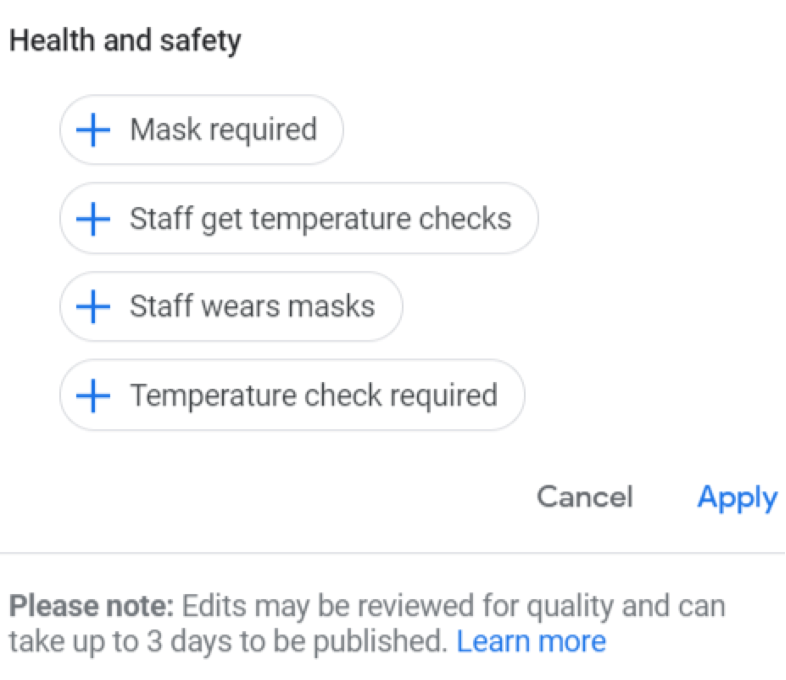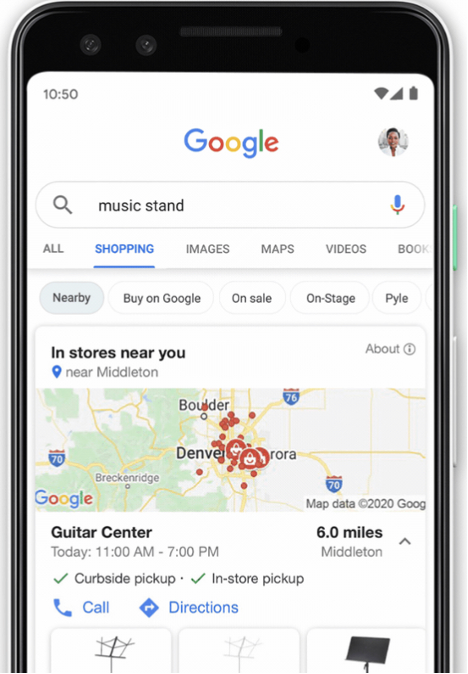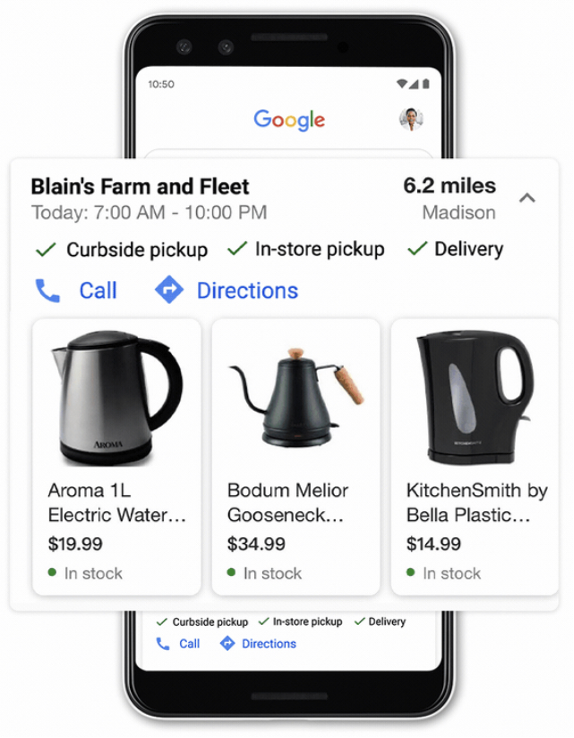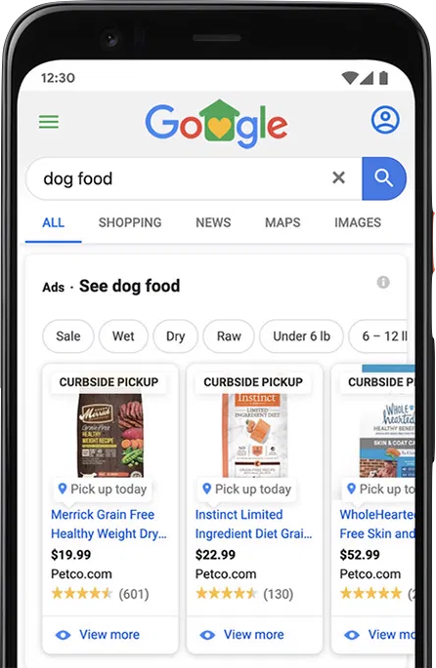3 min read
Honchō Scoops Up Two UK Search Awards!
It’s official, we've added not one, but two shiny trophies to our awards cabinet! We’re over the moon to share that we’ve triumphed at the UK Search...
Starting 1st of November, advertisers from the U.K, Austria and Turkey will be absorbing the new Digital Service Tax costs. For UK advertisers this means a 2% DST fee added to invoices from November 2020. Google also stated that if an advertiser uses manual or prepayment, this might result in additional charges and that it will not apply the taxes to prepaid funds.
Google, as well as Facebook and Amazon, has been targeted heavily by governments as they’re accused of not paying their fair share of taxes. Amazon has passed this extra tax onto their merchants and now Google has followed this move by passing this tax onto their advertisers.
There are a number of considerations for advertisers to be wary of as a result of this change. The fees are not deducted from the budget already put into Google and these new taxes will be in addition to an advertiser’s monthly budget. If you are a business which sells internationally, you may also want to check out what proportion of their spend and targeting goes towards the UK, Austria and Turkey.
Merchants around the world will now be able to list their products on Google Shopping for free, starting from the middle of October. The Google Shopping service was available for organic listings from April 2020 in the U.S., but it’ll now be available globally. This gives merchants access to a whole new channel to gain revenue and exposure at no extra cost. This could be very important for businesses looking to expand and improve.
It’s very simple to set up. Merchants will just have to upload their product feed to their Google Merchant Centre account and opt-in to “Surfaces on Google”. To learn about the change, what this means for merchants and how to optimise for it, read our April Search Updates blog.
Google confirmed on Twitter that Google Search Console experienced issues which caused delays to the Index Coverage Report. The report had not been updating since the beginning of September and Google confirmed themselves that they are working on resolving the issue.
We’re currently experiencing longer than usual delays in the Search Console Index Coverage report. This only affects reporting, not crawling, indexing, or ranking of websites. We’ll update here once this issue is resolved. Thanks for your patience!
— Google Webmasters (@googlewmc) September 14, 2020
The Index Coverage Report shows which pages on the website have been crawled, which caused concern as people feared their websites were not being crawled. However, Google stated that this delay does not prevent websites from being crawled or indexed. There have been no further updates from Google on this yet.
Businesses can now add any health and safety precautions they are taking to their GMB profiles. This enables customers to make a more informed decision. Adding health and safety measures putß customers’ minds at ease and also provides a competitive advantage.
The new attributes which can be added to the GMB profiles include:
Last month, Bing announced a new URL inspection tool as well as a new Robots.txt testing tool. The inspection tool will provide SEO information and feedback for the user to act on, providing answers to the most common SEO issues. The tools helps to identify other issues as well. Below is a list of all the information that the URL inspection tool will provide the user with.
Live Check – This feature highlights which pages on the website can be crawled and when the site may have been compromised.
Index Details – This card shows the indexability status of the website along with details on each step, highlighting when and where the URL is discovered, crawled and indexed.
SEO Details – This section provides a detailed analysis of SEO errors and highlights warnings.
Markup Details – Checks the availability and implementation of selected structured MarkUp language.
The Robots.txt testing tool will also be a useful tool for users to check the functionality of their website. New features enable testing and diagnosing of the Robots.txt file. This tool allows the users to:
Google is adding features onto the SERP for shopping-related searches to support consumers and businesses. These changes will make it easier for customers to shop conveniently and safely from local stores. With these changes, Google wants to combine the convenience and safety of shopping online with the immediacy of buying from a local shop.
The new SERP features which appear for shopping searches include:
Filter By Local Availability – You can filter the results by locations with a “Nearby” filter which is now available. You can also see these results if you simply add “near me” to your search.

Comparison Shopping – Comparison shopping will also be made easier as users will be able to preview in-stock items that match their search.

Local Pickup Made Easy – Local pick is made easier with features such as click to call, direct link to navigation and in-store pickup availability.

With the spread of ‘fake news’ being a hot topic in the world today and pressure being on tech companies to do more to stop the spread, Google added new features to protect users against misinformation. One of the features that have been added is an intelligence desk to deliver breaking news faster to the user. Google developed its system to automatically recognise breaking news results in just a matter of minutes, whilst still providing reliable and accurate information. Previously it would have taken them 40 minutes, which is a major improvement.
Knowledge panels have also been updated to ensure more accurate information is being shown. Partnerships with government agencies, health organisations and Wikipedia have meant that information in the knowledge graph panels is accurate and reliable. Google now detects most cases of vandalised information on Wikipedia.
Google added ‘regionsAllowed’ structured data to give international SEOs more influence over rich results. This allows publishers to tell Google that a video is region-specific and Google limits which regions are shown a rich result for that particular video.
‘regionsAllows’ is a “recommended property” which means that it is not necessary to add this structured data. However, for sites with videos which are meant for specific regions, this is a useful addition.
The regionsAllowed Structured Data Impacts:Google has changed their audience options for Display, Discovery, Gmail and YouTube campaigns. Where previously advertisers could set up audiences to be “custom intent” and “custom affinity”, these options have been changed to be called “custom audience”. You can set up a custom audience by adding specific keywords, URLs and apps related to your product or service to your campaign.
Custom audiences aim to bring efficiency to your account management as you don’t need to create custom intent or custom affinity audience types. Google uses your campaign goals and keywords to interpret all the signals to achieve Reach, Consideration or Performance.
Bing is using artificial intelligence and natural language models to improve its autosuggest, “people also ask”, “question answering” and semantic highlighting features. Bing’s search suggestions and features now use Microsoft Turing Natural Language (T- NLG) Next Phase Prediction to suggest search phrases in real-time instead of just using previous queries and searches. This new advancement for Bing will enable their search engine to better understand queries and provide a more tailored and specific service, improving their user experience. Google also looks to incorporate AI and natural language in their search algorithms, to better understand and serve their users. Now, Bing is doing the same.
From November, Googlebot will crawl over HTTP/2, a small number of websites which may benefit from the initial support features. HTTP/2 is a major update of the HTTP network protocol which will enable crawling to be more efficient in terms of server resource usage. Google states that there are multiple benefits to crawling over HTTP/2.
Benefits Of HTTP/2 according to Google:
However, Google stated that there will be no ranking benefits from having HTPP/2.

3 min read
It’s official, we've added not one, but two shiny trophies to our awards cabinet! We’re over the moon to share that we’ve triumphed at the UK Search...

5 min read
Understand ecommerce attribution models which attribution models can maximise your marketing efforts and ROI.

3 min read
Explore how social commerce is changing the way we shop online, blending social interactions with digital commerce for a seamless buying experience.